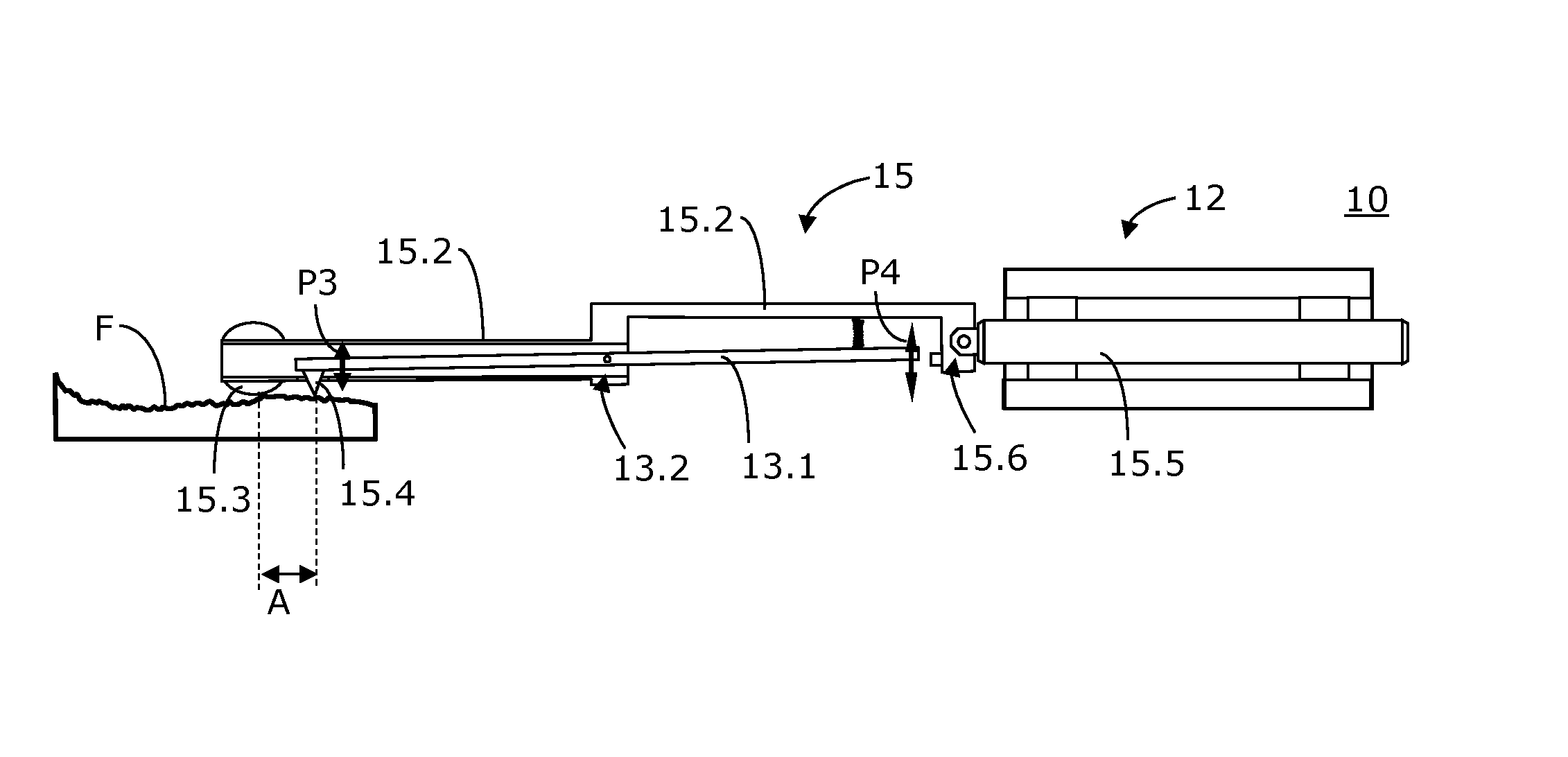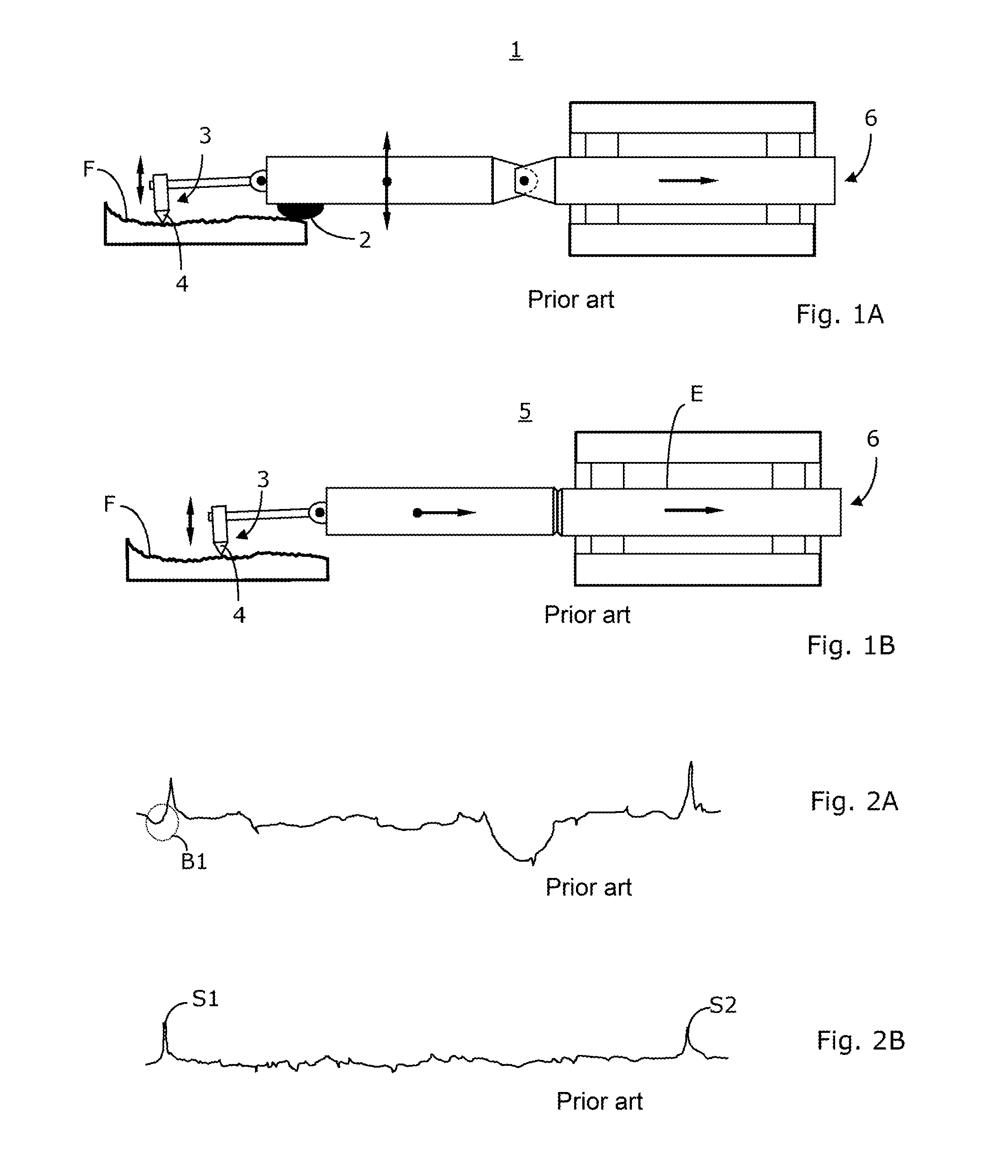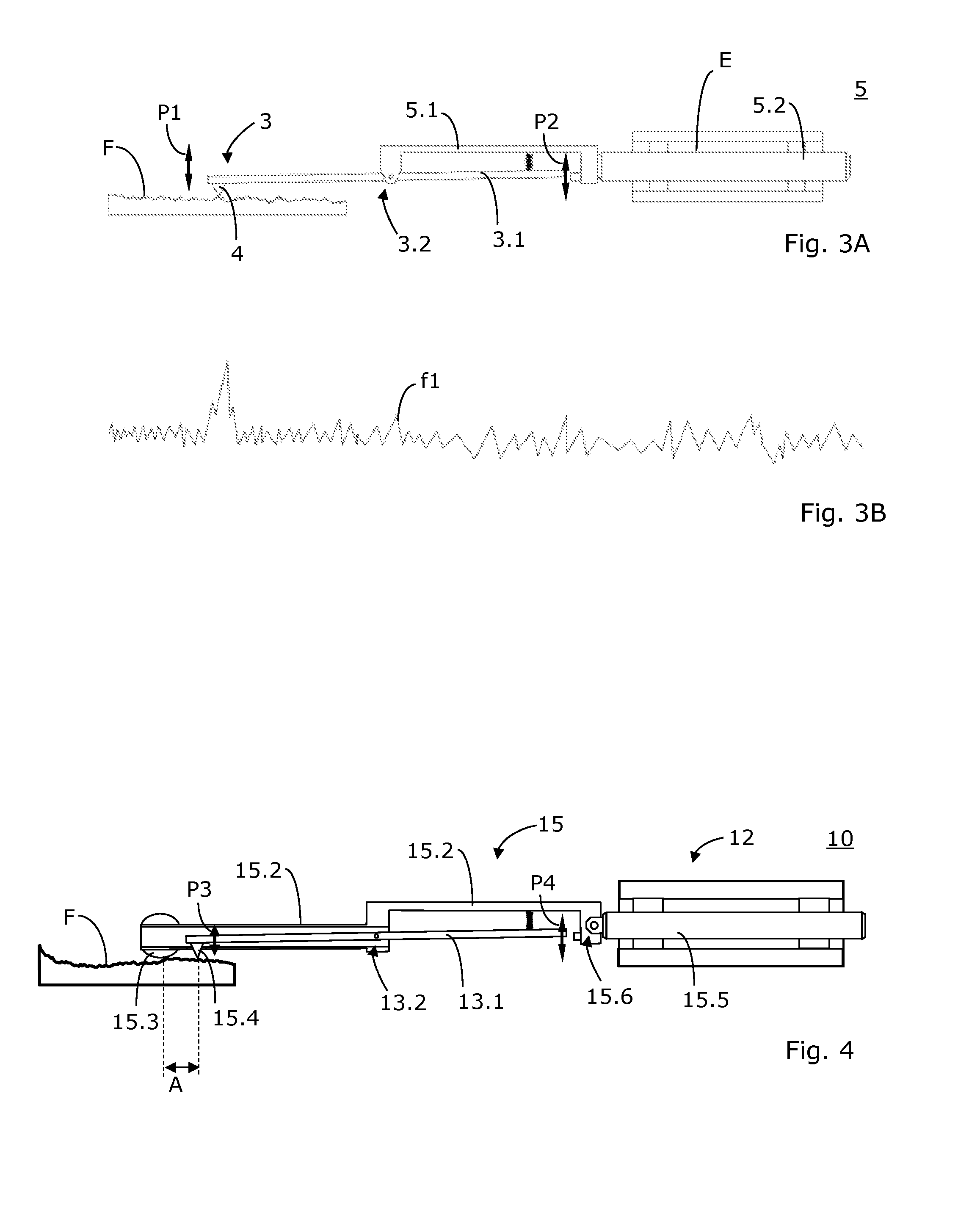Apparatus having a roughness measurement sensor and corresponding methods
a technology of roughness measurement and sensors, applied in the direction of mechanical roughness/irregularity measurement, measurement devices, instruments, etc., can solve the problems of different runner sensors being visible, and runner sensors being also susceptible to falsification
- Summary
- Abstract
- Description
- Claims
- Application Information
AI Technical Summary
Benefits of technology
Problems solved by technology
Method used
Image
Examples
Embodiment Construction
[0039]In relation with the present description, terms are used that are conventional to pertinent publications and patents. It is noted however that the use of these terms are only for descriptive purposes and should not be construed as limiting. The inventive idea and the scope of the patent claims shall not be limited in their interpretation by the specific choice of the terms used in the specification. The invention can be adapted to other systems of terminology and / or technical fields. In other technical fields, the terms are to be used analogously.
[0040]The term roughness is used here to denominate the surface quality of a surface. The roughness is limited to microscopic dimensions, in the sense of particular points or local conditions. Herein, typically in relation with the roughness, structures, elements and features of a surface F are concerned that have a size in the range of nm to approximately 500 μm.
[0041]A shape (also termed evenness) is a 2- or 3-dimensional plane or a...
PUM
 Login to View More
Login to View More Abstract
Description
Claims
Application Information
 Login to View More
Login to View More - R&D
- Intellectual Property
- Life Sciences
- Materials
- Tech Scout
- Unparalleled Data Quality
- Higher Quality Content
- 60% Fewer Hallucinations
Browse by: Latest US Patents, China's latest patents, Technical Efficacy Thesaurus, Application Domain, Technology Topic, Popular Technical Reports.
© 2025 PatSnap. All rights reserved.Legal|Privacy policy|Modern Slavery Act Transparency Statement|Sitemap|About US| Contact US: help@patsnap.com



